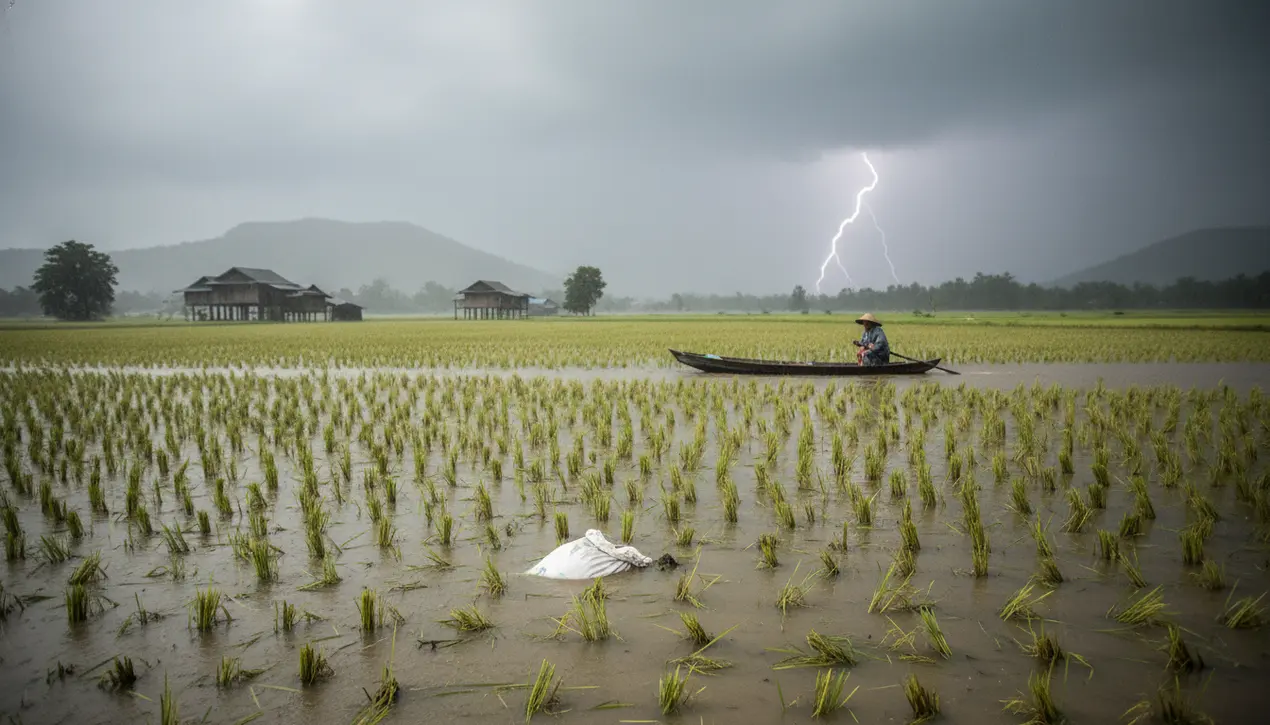
Scienceclimate scienceExtreme Weather Studies
Extreme floods are slashing global rice yields faster than expected
RA
Rachel Adams
2 hours ago7 min read1 comments
The world’s most vital food crop is facing a hydrological crisis far more severe than scientists had ever projected. New research reveals that a single week of complete submergence is sufficient to kill the majority of rice plants, a finding that fundamentally recalibrates our understanding of flooding's threat to global food security.This isn't a slow-moving environmental story; it is a fast-unfolding agricultural emergency. As climate change turbocharges extreme rainfall events, the very regions that feed billions—from the vast paddies of Bangladesh and the Mekong Delta in Vietnam to the critical growing areas of India and China—are becoming increasingly vulnerable to catastrophic losses.The science is stark: rice, a plant that thrives in water, possesses a surprising fragility. While it can withstand standing water, total inundation cuts off its supply of oxygen and sunlight, leading to a swift and irreversible collapse.For generations, farmers in these floodplains have worked with the seasonal rhythms of rivers, but the new climate reality delivers torrents that are more frequent, intense, and unpredictable, overwhelming traditional coping mechanisms. The consequences ripple far beyond submerged fields.A significant drop in rice yields doesn't just mean economic ruin for smallholder farmers; it threatens to destabilize global grain markets, spike food prices, and exacerbate hunger in nations that are already food-insecure. The geopolitical implications are profound, as rice-dependent nations may be forced to rely on volatile international imports, creating new tensions.However, within this bleak prognosis lies a seed of hope, cultivated in research stations from the International Rice Research Institute in the Philippines to pioneering labs in the United States. Scientists have been developing 'scuba rice' and other resilient varieties engineered with a remarkable gene called SUB1A, which allows the plant to effectively go into a state of suspended animation for up to two weeks underwater, reviving once the floods recede.The adoption of these climate-smart cultivars is a race against time. The barrier is not a lack of technology, but the immense challenge of distribution, education, and convincing farmers to abandon heirloom seeds for a genetically modernized lifeline.This is a battle being waged at the intersection of ecology, economics, and human survival, a testament to our need to work with nature's new, more violent systems rather than simply hoping they will revert to a gentler past. The data is a clear call to action: the resilience of our global food web depends on our willingness to sow the seeds of adaptation, today.
#featured
#extreme floods
#rice yields
#climate change
#agricultural impact
#food security
#resilient crops
Stay Informed. Act Smarter.
Get weekly highlights, major headlines, and expert insights — then put your knowledge to work in our live prediction markets.
Comments
Loading comments...
© 2025 Outpoll Service LTD. All rights reserved.